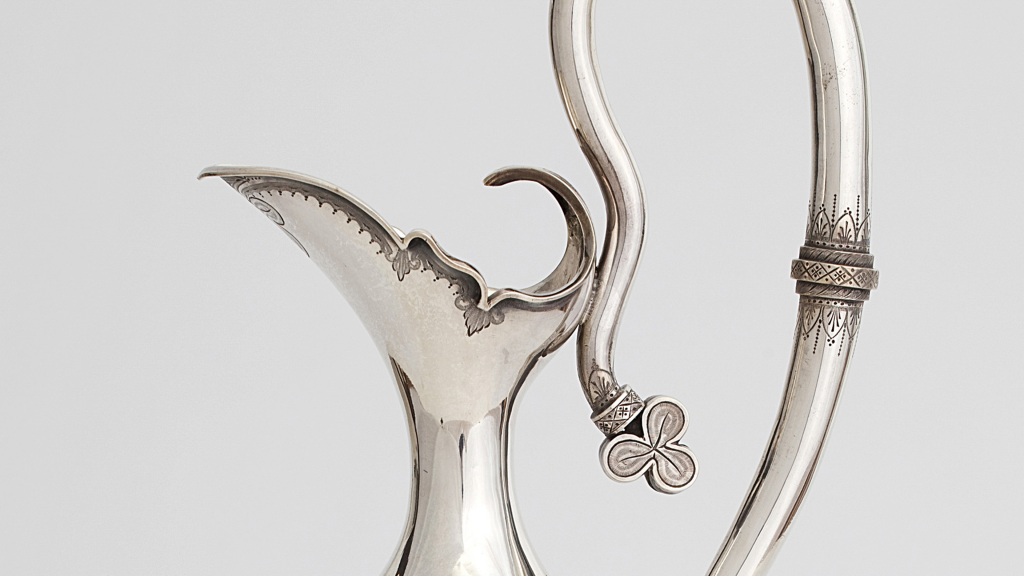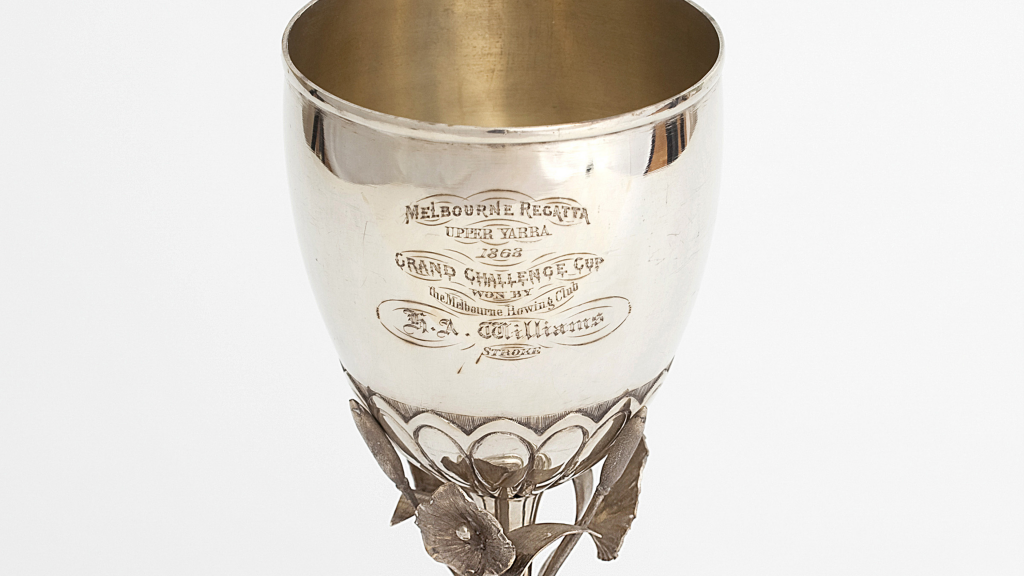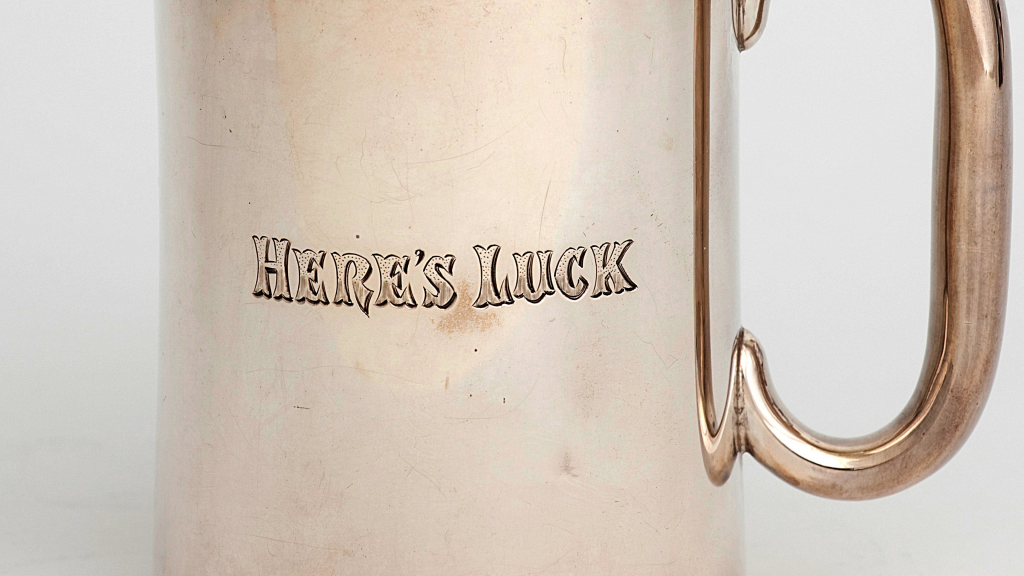
Before the 1850s, Australian silverware was incredibly scarce. The nature of settlement, including a low population and lack of materials, meant silversmithing was an extravagance. That is, until the discovery of silver, especially in Broken Hill, made it possible for a few talented craftsmen to become prolific manufacturers. Joachim Wendt (1830-1917) was one of the […]
Read More…
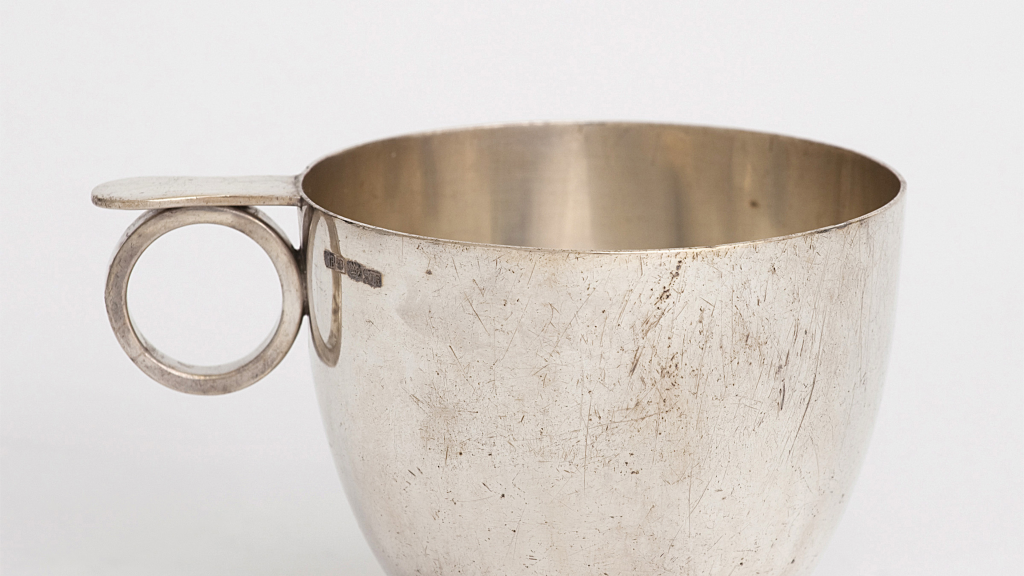
This little silver mug, with its matching porringer bowl, might have been presented to the parents of a fortunate baby in the early 1900s. Baby-sized sets of silver tableware have been popular christening gifts since they were first introduced in Stuart England. Given by godparents, they were a kind of good-luck charm, invoking prosperity and […]
Read More…
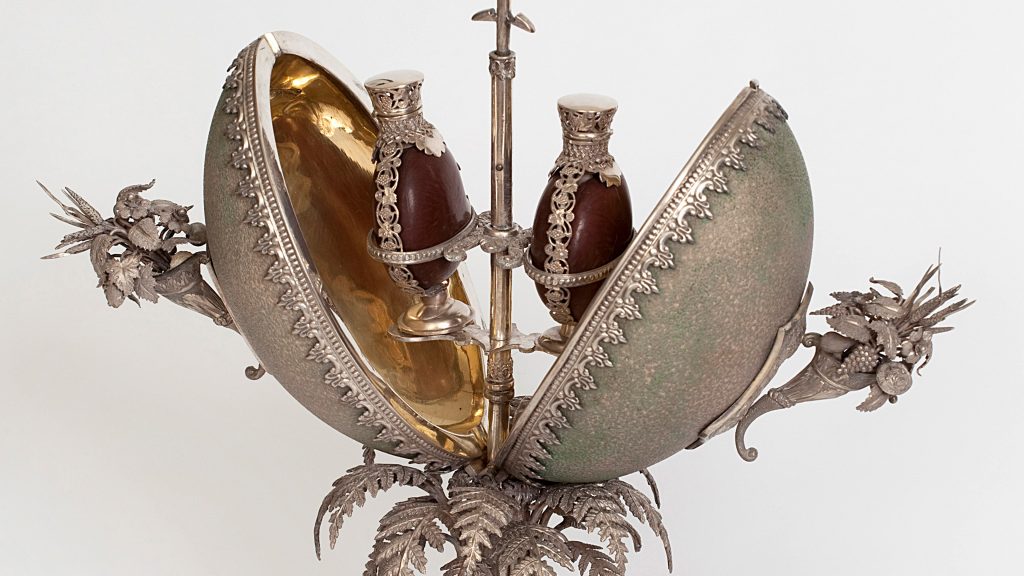
The mid-nineteenth century gold rush brought smiths and jewellers to Australia intent on reaping the benefits of a newly prosperous Australia. In 1858, Henry Steiner (1834-1914), a German silversmith, immigrated to Adelaide, South Australia, for that very reason. Now known as one of Australia’s most prolific silversmiths, much of his success was made possible by […]
Read More…
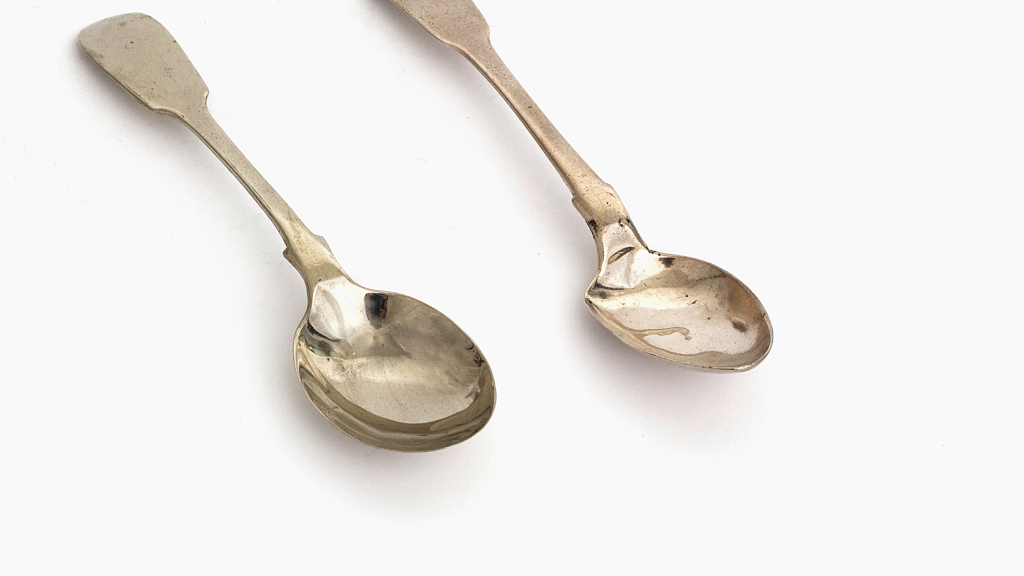
Silver spoons were very nearly Alexander Dick’s (c.1791-1843) undoing. A free settler who arrived in 1824, he was a working silversmith with a prospering business in Sydney in 1826 when he made a deal that cost him dearly. Anxious to produce an order of silverware for a client, he knowingly bought a set of ‘old’ […]
Read More…
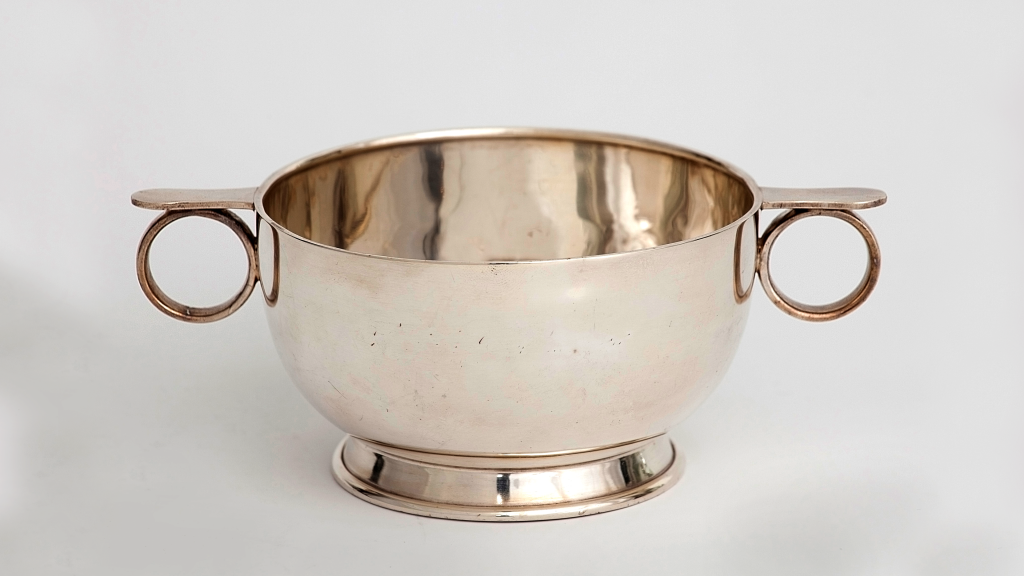
If someone were to politely offer you ‘a little silver porringer of hot terrapin’ would you eagerly accept, respectfully decline, or ask for more information? While such an offer might bewilder contemporary diners, an 1880s gourmet would lick their lips in anticipation of tucking into some creamy turtle soup served in a small silver bowl. […]
Read More…
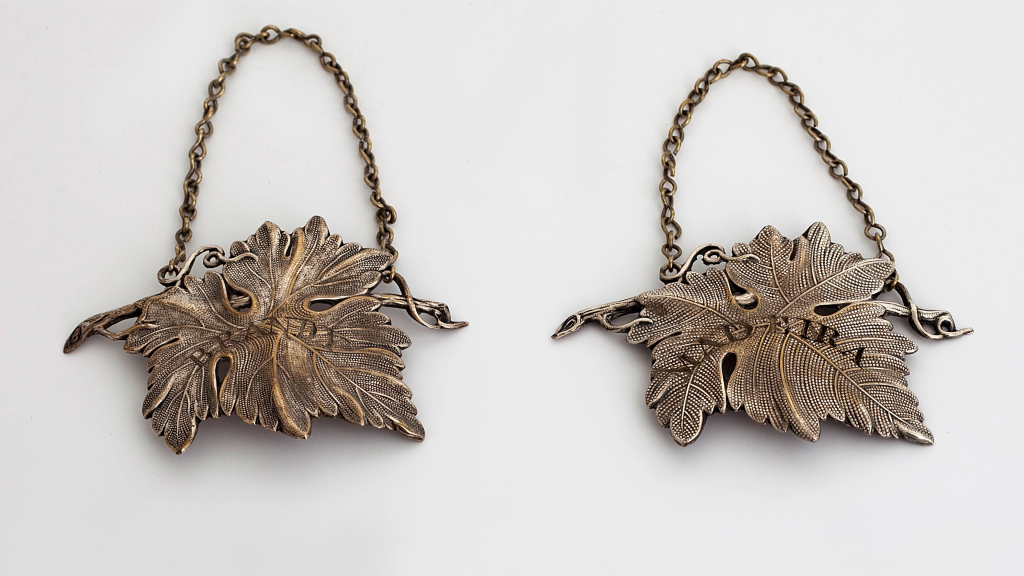
In the days before the twentieth century’s marketing of alcohol with distinctive bottles and branded labels, alcohol was decanted at home into glass decanters. Wine labels, or ‘bottle tickets’ as they were sometimes known, were hung on the necks of decanters to identify the contents within – in this case, madeira and brandy. Decanters and […]
Read More…
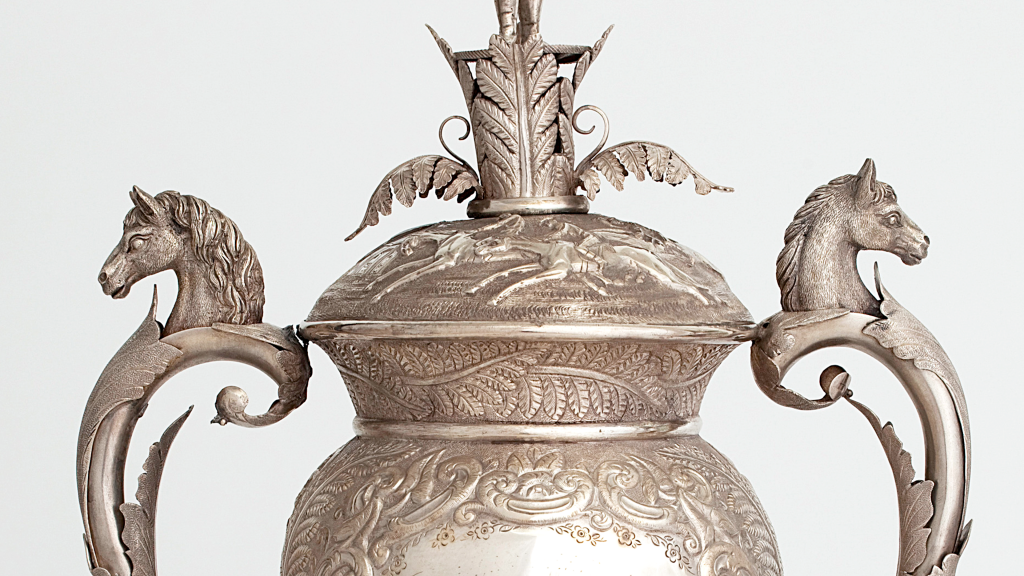
The jockey atop this impressive silver racing trophy has lost his more than his whip; he has lost his place in history. It’s not known who won this cup, or indeed, if it was ever presented as a trophy. The cartouche (ornate frame), which would customarily be engraved with the name, date and place of […]
Read More…
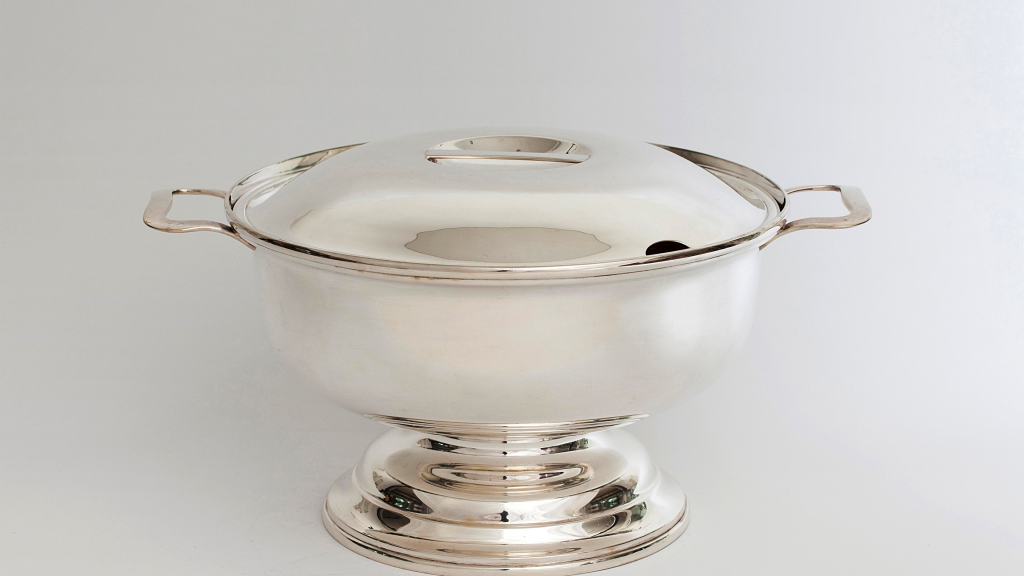
Soup was an important part of nineteenth century dining. In her 1863 book of household management, Mrs Beeton devotes fifty pages to soup, ranging from the cheap and cheerful ‘Hodge-podge’ to turtle soup – ‘the most expensive brought to table’. Soup was always the first course at any meal, and in wealthier households was brought […]
Read More…





